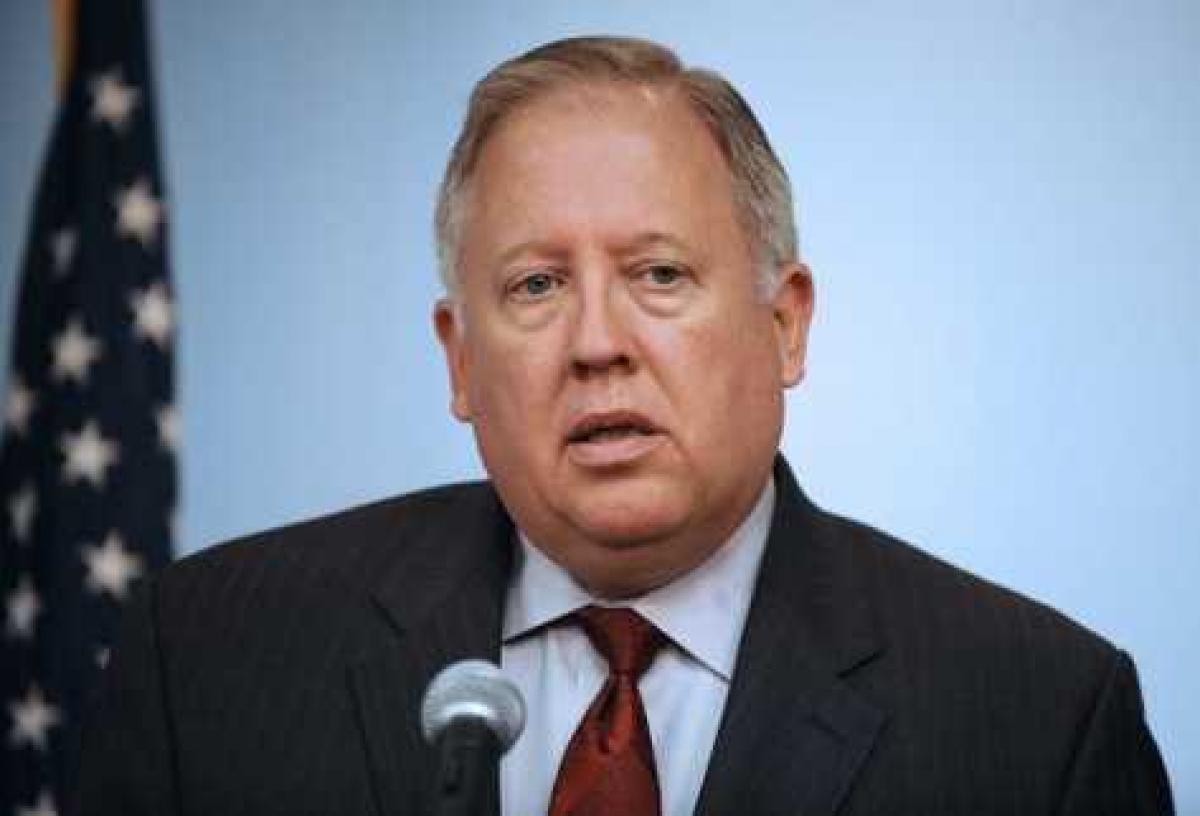Live
- What’s The Matter At Hand?
- Pollution levels continue to soar in Yamuna
- 540 touts held for duping passengers at IGI Airport
- Keen to bring Sports Bill in Budget Session: Mandaviya
- HC to hear plea against Kejriwal's bail in Jan
- SC grants bail to two in Waqf Board money laundering case
- Is ‘Deep State’ threat real or just a bogey?
- Sisodia not to report to police twice a week: SC
- No possibility of alliance with Cong for Delhi polls: Kejriwal
- Marriage an integral part of life: Top court enhances compensation to road accident victim
Just In

A day after China reacted strongly over his remarks that Beijing had blocked India\'s entry into the Nuclear Suppliers Group (NSG), senior US diplomat Thomas Shannon on Friday reiterated that India was worthy of membership of the elite body and said he had only expressed his disappointment in not getting it into the group.
Kolkata:A day after China reacted strongly over his remarks that Beijing had blocked India's entry into the Nuclear Suppliers Group (NSG), senior US diplomat Thomas Shannon on Friday reiterated that India was worthy of membership of the elite body and said he had only expressed his disappointment in not getting it into the group.
Pointing out that he had never mentioned China in his comments on the NSG, the US Under-Secretary of State for Political Affairs denied that his words were "aggressive".
"The Chinese have reacted strongly to comments that I made in Delhi. It is worth noting that in Delhi, I never mentioned China with regards to the NSG. I just referred to the nature of the NSG meeting that took place in Seoul and the fact that the Nuclear Suppliers Group historically has been an organisation that runs on consensus.
"I expressed our disappointment in not getting India into the NSG at this point in time. We thought it was a good moment to do so, we thought India was worthy of that membership and would actually enhance the NSG," Shannon said at a media round-table here.
"The fact that we were unable to do so means there was opposition and as I noted in Delhi one of my purposes was to sit down with my Indian counterparts and discuss our diplomatic strategy and how it played down in Seoul and what more we need to do so that when we have the opportunity to once again support India's accession to NSG, that will be successful," he said.
China on Thursday slammed the US over Shannon's remarks, saying it had "no regard" for facts, and accused Washington of trying to drive a wedge between Beijing and its neighbours.
Shannon had said in New Delhi: "We understand that in a consensus-based organisation, one country can break consensus. But in order to do so, it must be (held) accountable, not isolated."
Responding to a media query on Friday, Shannon said: "I don't think my words were aggressive, I was underscoring as far as NSG was concerned. My principle purpose was to underscore our support for India joining the NSG and lamenting the fact that it could not happen."
He also said that China's growing economic and geopolitical importance was a threat and opportunity both for India and the US and stressed on the need for peaceful resolution mechanism for the South China Sea issue.
"China is an important partner of the US. I am sure that India understands China's economic rise in the same way. But geo-politically we need to find ways to ensure that the partnership isn't undermined or undercut in any fashion. And in that sense I think the US-India relationship is one that makes sense on its own.
"India will have to shape its own relations with China. We see a strong India as being an important part of stability of the larger indo-pacific region," he said.
On the issue of South China Sea, he said: "This is an issue that we have been working on for quite some time. We want to find a way to underscore the fact that China has much to gain from cooperating with all the countries that border along the South China Sea or use it as a vital internal sea-link.
"We believe in international law, respect for freedom of navigation and recognition of peaceful dispute resolution mechanism is more effective way of ensuring free movement of goods and services through the South China Sea and for the peaceful use of that region," added Shannon.

© 2024 Hyderabad Media House Limited/The Hans India. All rights reserved. Powered by hocalwire.com







